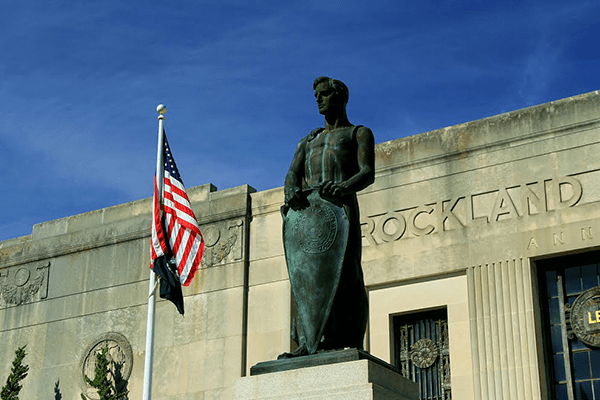|
RCBJ-Audible (Listen For Free)
|
Councilmembers Borelli and Carroll Hire Attorney To Defend Town While Town Moves To Defend Itself With Inside Counsel; Judge Will Be Needed To Break Up The Fight
By Tina Traster
Clarkstown Town Supervisor George Hoehmann and Councilman Don Franchino last month sued the Town of Clarkstown to overturn a term limits law that was passed in 2014.
This week, a legal response to the suit was filed in Rockland County Supreme Court by not one lawyer, but two. In an unusual twist of events, two councilmembers on behalf of the town have hired outside counsel to defend the suit, while the town attorney’s office is attempting to do the same.
It will require a judge to decide who is entitled to defend the town in this suit.
Councilmembers Frank Borelli and Patrick Carroll have hired Daniel Szalkiewicz & Associates of Manhattan to fight an allegation that the term limits law is illegal because it needed a voter referendum eight years ago. The pair say it is necessary to hire outside council to defend the town because town attorney Craig Johns and his deputies work at the pleasure of the Supervisor and are appointed by town councilmembers, and therefore have a conflict.
After the board last week voted on hiring outside counsel, with the lawsuit plaintiffs recusing themselves, it remained unclear whether the 2-1 vote in favor allowed the board to follow through with hiring an attorney. Johns raised the notion that the council required all three non-recused members to vote in favor, citing a town law that says a majority vote of the whole board is needed. Councilman Michael Graziano voted against hiring outside counsel.
Subsequently, Johns wrote in an email the motion to appoint outside counsel failed, “and until and unless the Town Board revisits the issue and directs the Town Attorney to retain outside counsel, the Town Attorney’s office must defend the Town.”
Szalkiewicz disagrees.
“A vote was held and a resolution was passed by a 2-1 vote to have outside counsel represent Defendants,” he wrote in his filing with the court. “On Jan. 6, 2023, our firm requested the necessary paperwork to ensure we were retained in accordance with the town’s policy. The town attorney refused to cooperate and instead stated, contrary to the vote total, that the town attorney’s office would represent the defendants.”
Szalkiewicz, in a letter to Judge Amy Puerto, wrote, “There can be no doubt that Deputy Town Attorneys Conway and Schofield are highly regarded and well-respected lawyers. However, given the will of the non-conflicted Town Board members, the Defendants should not have counsel thrust on them by a Town Attorney who has properly recused himself. We respectfully request a conference with the court to hash out any confusion concerning the representation of the Town and Town Board so that the focus can rightfully be on defending this lawsuit to the greatest extent possible.”
Johns argues the board needed a total majority – meaning three votes – to hire outside council.
“A careful reading of the statute…supports my representation at the Town Board meeting that three “yes” votes were necessary under the law,” he wrote in an email.
NY JUR section 187 explains, he wrote, “By mandate of statute, every … motion … requires for its adoption the affirmative vote of a majority of all the members of the town board, and this clearly means a majority of the officers constituting the board, and not a majority of the residuum resulting from … disqualifications”.
But Szalkiewicz in his filing argues the town attorney recused himself during the town board meeting from “acting in this litigation.” The attorney also takes issue with Hoehmann and Franchino having been present during the voting, saying “a board member with a conflict of interest should not sit with his or her fellow board members during the deliberations and action regarding the matter.”
He goes on to say that their presence infects the process because it “holds the potential of influencing fellow board members.”
In his filing to defend the town against Hoehmann’s and Franchino’ suit, Town Attorney Kevin Conway said town has the right to use inside counsel to defend the town.
At issue is whether the town’s term limit law is illegal. In yet another instance of vagary, the board at the same hearing last week voted 3-2 to repeal the term limit law but as it’s written, the law needs a supermajority (at least four of the five council votes) to be repealed.
Here again, the decision on the validity of the vote over the law will likely be decided by a court.
Clarkstown’s term limit law only allows for repeal by a super-majority of the board — that is a majority plus one vote. As written, to repeal the term limit law would require four votes. The current law was passed eight years ago by a unanimous vote of the town board. Hoehmann championed the law and voted affirmatively for term limits at the time.
For months, Hoehmann, assisted by town attorney Johns, toyed with trying to get rid of term limits by claiming the language of the law was vague.
But in a fresh turn, the suit alleges the law should be voided because residents “never had the opportunity to decide the issue at a public vote.” Plaintiffs are essentially saying that the term limit law was not valid because it was not passed by a public referendum and contains a provision for repeal only by super-majority.
To support their claims, plaintiffs argue that because New York law requires that every “act, motion or resolution” be passed by a majority of all of the members of the Town Board, and that imposing a requirement for a super-majority to repeal the law “curtails the voting power of elective officers” to pass laws by simple majorities. Public referendums are required whenever a local law, “abolishes, transfers or curtails any power of an elective officer.” The suit is essentially arguing that because the law only allows for repeal by super-majority and was passed without a public referendum, it is illegal.










